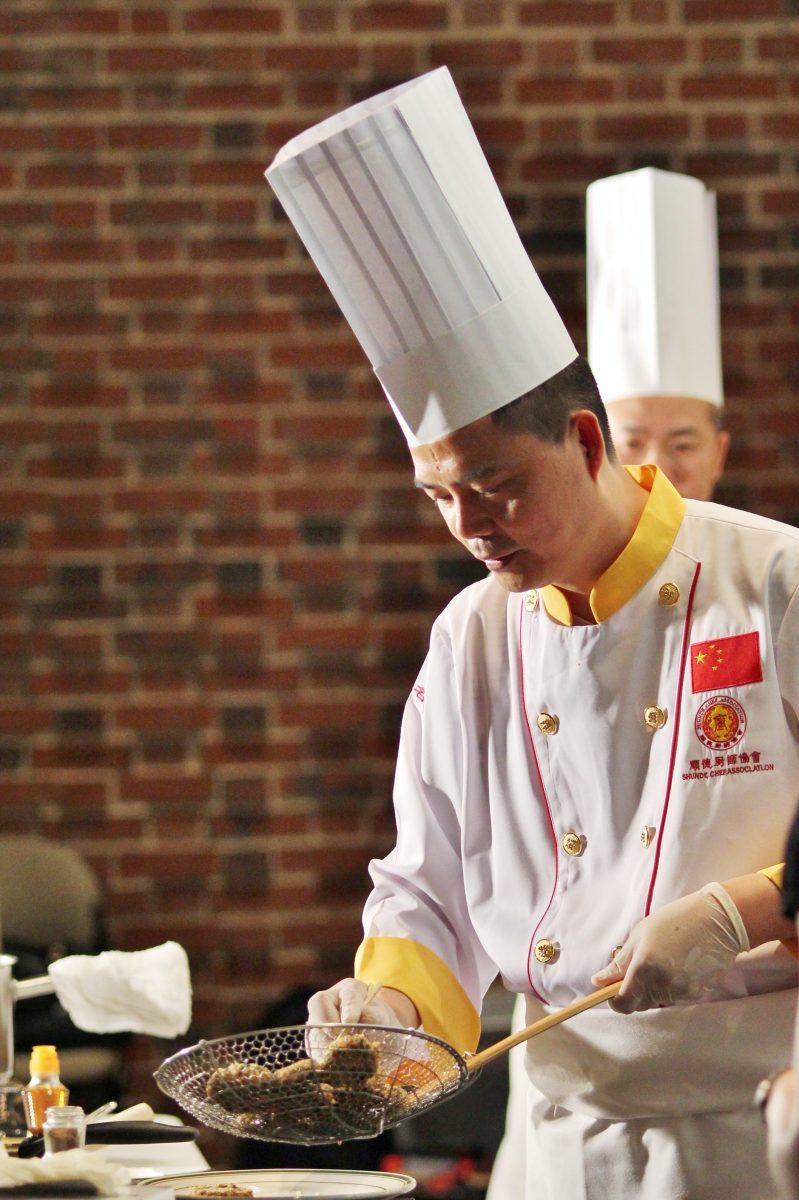Connecting different cultures through education is a prominent goal for the Office of International Affairs and the Confucius Institute of N.C. State. Doing so through the medium of food makes this task easier.
Last Wednesday, the Confucius Institute teamed up with the China Cuisine Association to host “A Bite of China.” Four master chefs traveled from the Shunde district in Guangdong Province, China to demonstrate their techniques in Cantonese cooking.
Through outreach activities and interactive events, students on campus have been able to experience Chinese customs. Students are able to immerse themselves in the activities and develop an understanding and appreciation for the values and importance of Chinese traditions and language.
“China is a country of wonderful and important cuisine,” Wu Ziqun, deputy chief of Shunde recreation, said.
The China Cuisine Association, founded in April 1987, is a nationwide organization of chefs, social groups and others relevant in the hospitality industry. They are centered on research for solving practical problems, creating good operating environments for the industry, training students at universities and colleges about the importance of the hospitality industry and hosting food festivals.
The associations is also focused on continually communicating with other countries to increase the modernization of the Chinese catering and hospitality industry, a goal served by “A Bite of China.”
Ziqun explained that the art of cooking in the Shunde district represents diverse, raw local foods, masters who specialize in certain types of cooking, the importance of nutrition and varying dishes in a meal.
“There are many rivers and lakes in the Shunde district that are used to grow rice beside,” Ziqun said. “They are very convenient to use raw materials, fresh foods.”
The four master chefs, Luo Funan, Lin Chaodai, Lian Gengming and Ma Chenggen, each represented themselves with two traditional Cantonese-style dishes that they were familiar with cooking.
The use of fresh herbs, vegetables and spices was prevalent in all of their dishes. The master chefs demonstrated their wide range of knowledge in cooking techniques as they boiled, fried and prepared dishes ranging from a whole chicken with head attached in four seasonings, to ginger-infused fish balls to Fengcheng fried milk, a traditional dish in their community.
“There are many cooking masters of chicken in the Shunde district,” Ziqun said.
As members of the audience were called up to try the many dishes the chefs were cooking, a translator explained the importance of each dish and the culture that lies behind their cooking techniques and how the dish is represented.
Through the art of cooking, students of N.C. State were able to have a first-hand look into the lives of these master chefs from the Shunde district. Without the outreach of the Confucius Institute and the Office of International Affairs, programs centered about Chinese culture would not be available to the majority of students at N.C. State.
“A big aspect of reaching out to students is to give them an introductory course,” Anna Lamm, China director for the Confucius Institute, said. “Something interactive that gives back to other cultures and educates them.”








